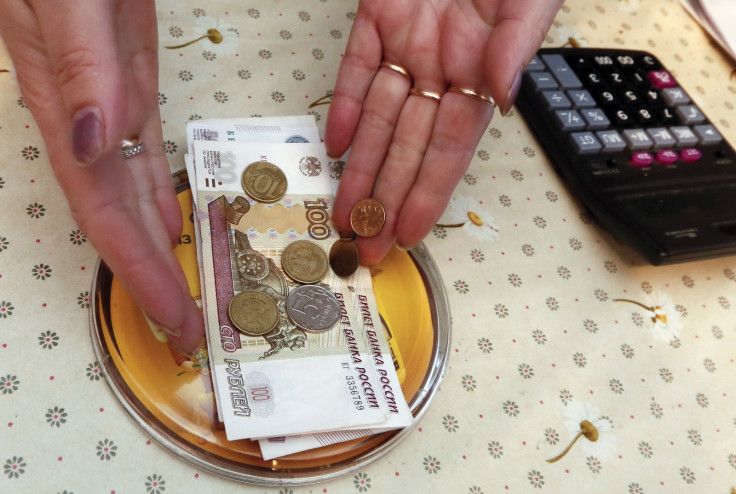Russian economy contracts further, rate cuts predicted

The Russian economy contracted more than expected in May, increasing the likelihood of further rate cuts by the world's ninth largest economy, while the rouble fell to a 11-day low against the dollar.
The Russian Federation's economy shrank 4.9% from a year earlier in May, registering its fifth straight month of contraction, and deeper than April's 4.2% decline.
At -4.9%, the GDP rate was at its lowest since late 2009.
Analysts had been expecting a decline around the previous month's rate. USD/RUB rose to 55.31, its highest since 15 June, from the previous close of 54.70.
The currency pair had been rising over the past several sessions, and over this week the rouble has fallen more than 2.3%. This reversed much of the gains since 15 June, when the central bank announced its latest rate cut that took the benchmark interest rate to 11.5%.
The Rouble had made some gains after the rate move, sending the pair to a two-week low of 52.95 in the next three days, but the correction of late has ensured that the Russian unit is on course to end the month weaker.
So far in June, the rouble is down 4.7%, adding to the 1.5% decline in May. That said, the losses since last month only slightly corrects the 33% gain made over the three months through April.
Policymakers and experts have suggested that the rally in the currency in the February-April period helped the country's manufacturers through lower import costs, so any reverse action in it would impact the manufacturing environment.
Markit Economics said in its 1 June report: "There was, however, some further positive developments on the prices front as input cost inflation continued to descend from January's record pace in line with a strengthening of the rouble against major global currencies."
The May manufacturing purchasing managers index had fallen to a four-month low of 47.6 from the 48.9 recorded for April.
Markit senior economist Paul Smith said the May data was disappointing, but added that the prices trend suggest the macro- economic environment is showing some sign of improvement.
If the currency goes further south in the coming weeks, more likely as the dollar could rise to new highs with the Greece situation remaining unsolved, Russian manufacturers are set to lose the advantage of lower input prices, which in turn could impact the output.
The former Russian finance minister and the head of the Civic Initiatives Committee think tank, Aleksei Kudrin, said earlier in June that the fall of the Russian economy this year will amount to roughly 4%, and not 2.8% as the government expects.
Kudrin said that global sanctions on Russia takes away 1% to 2% from the GDP.
© Copyright IBTimes 2025. All rights reserved.






















